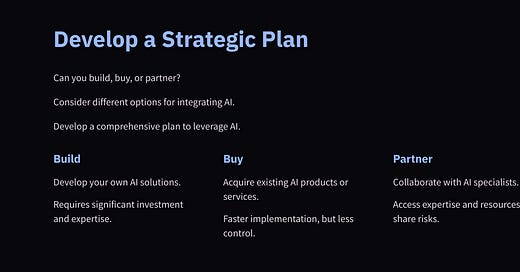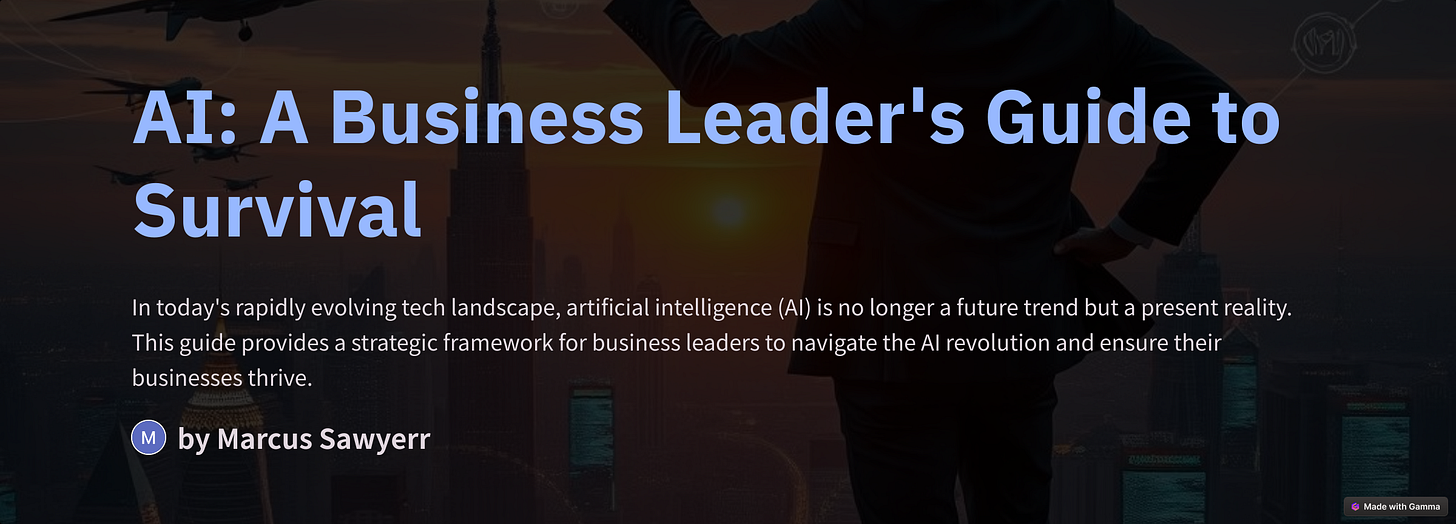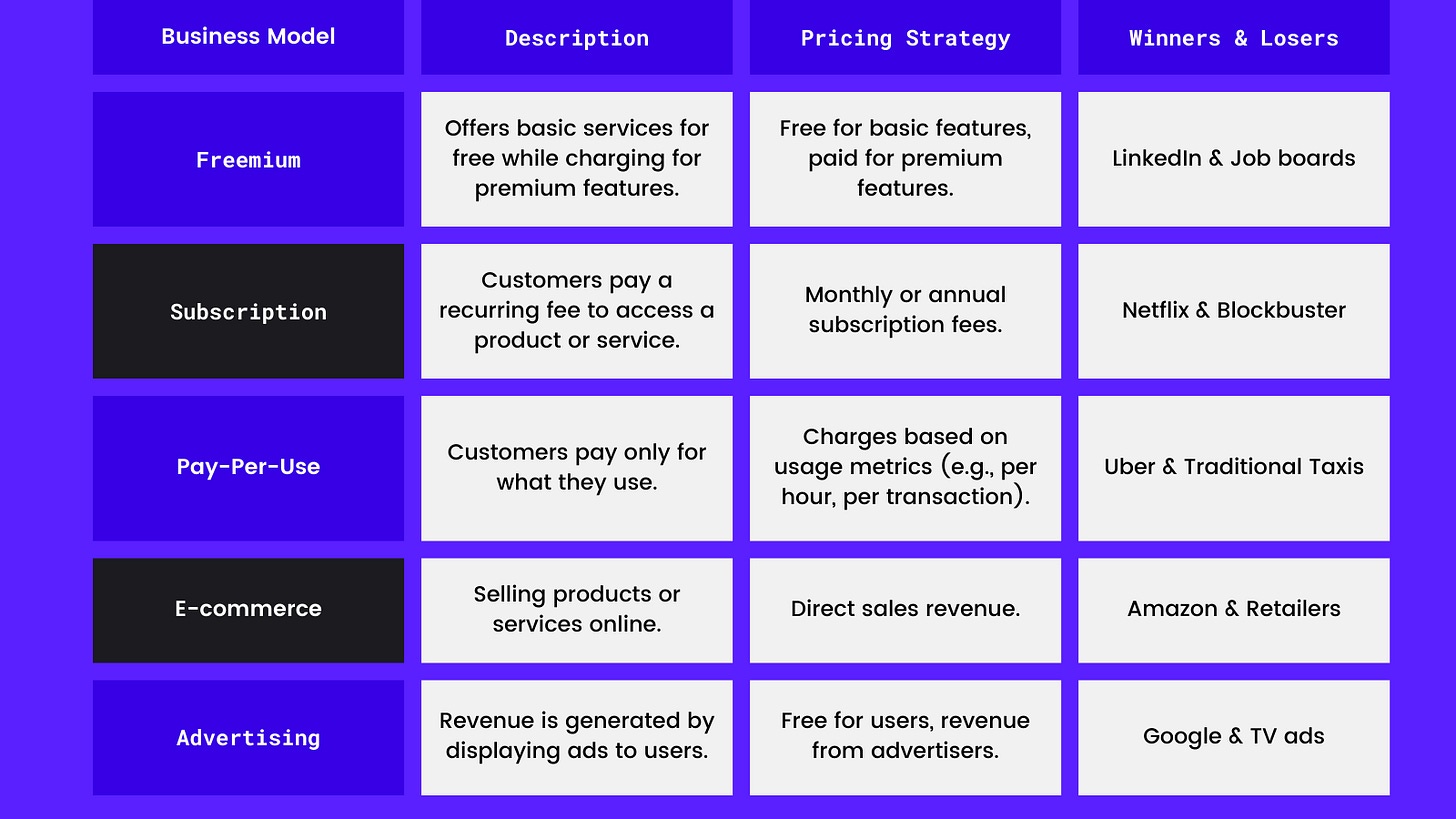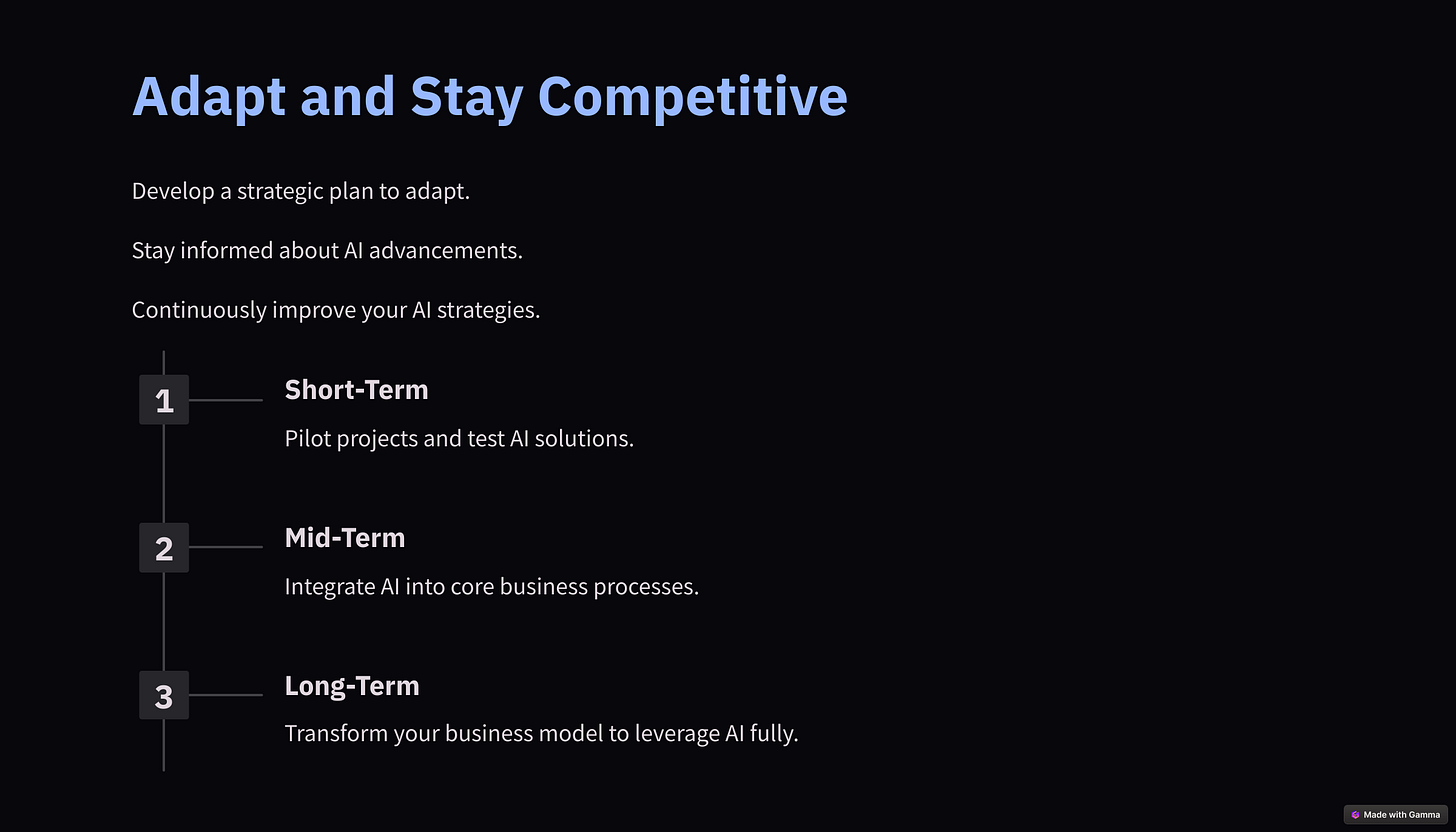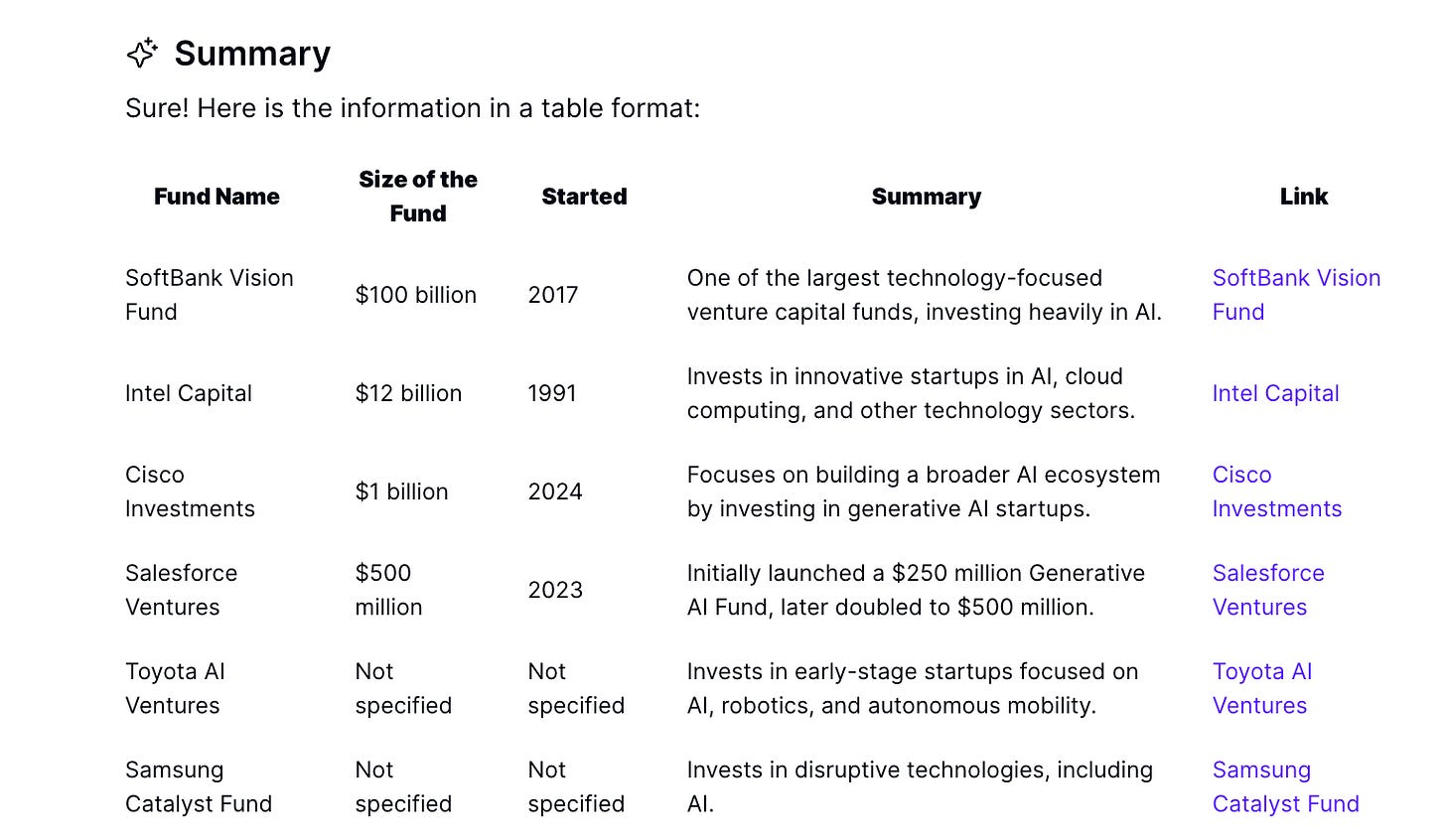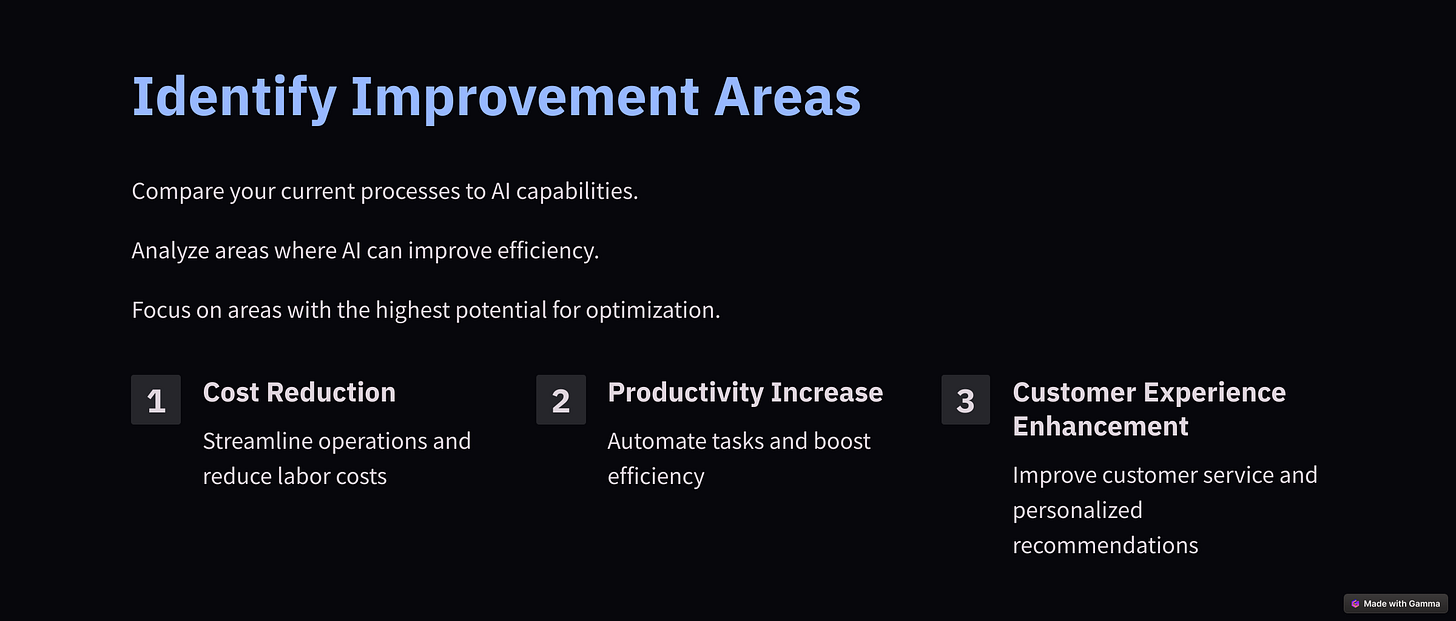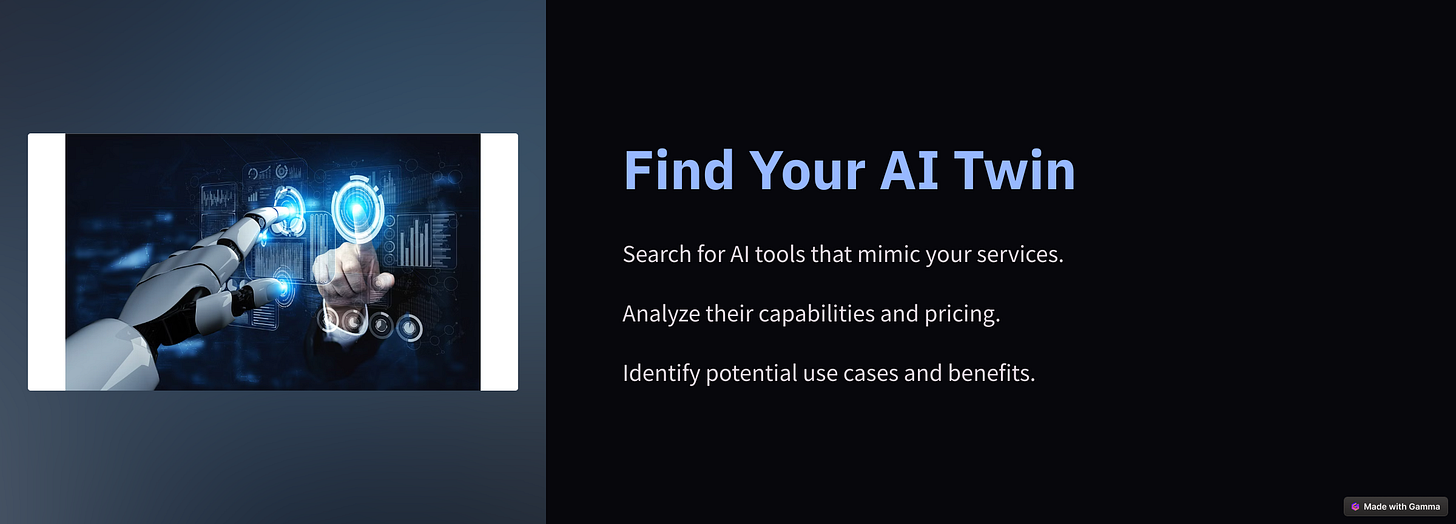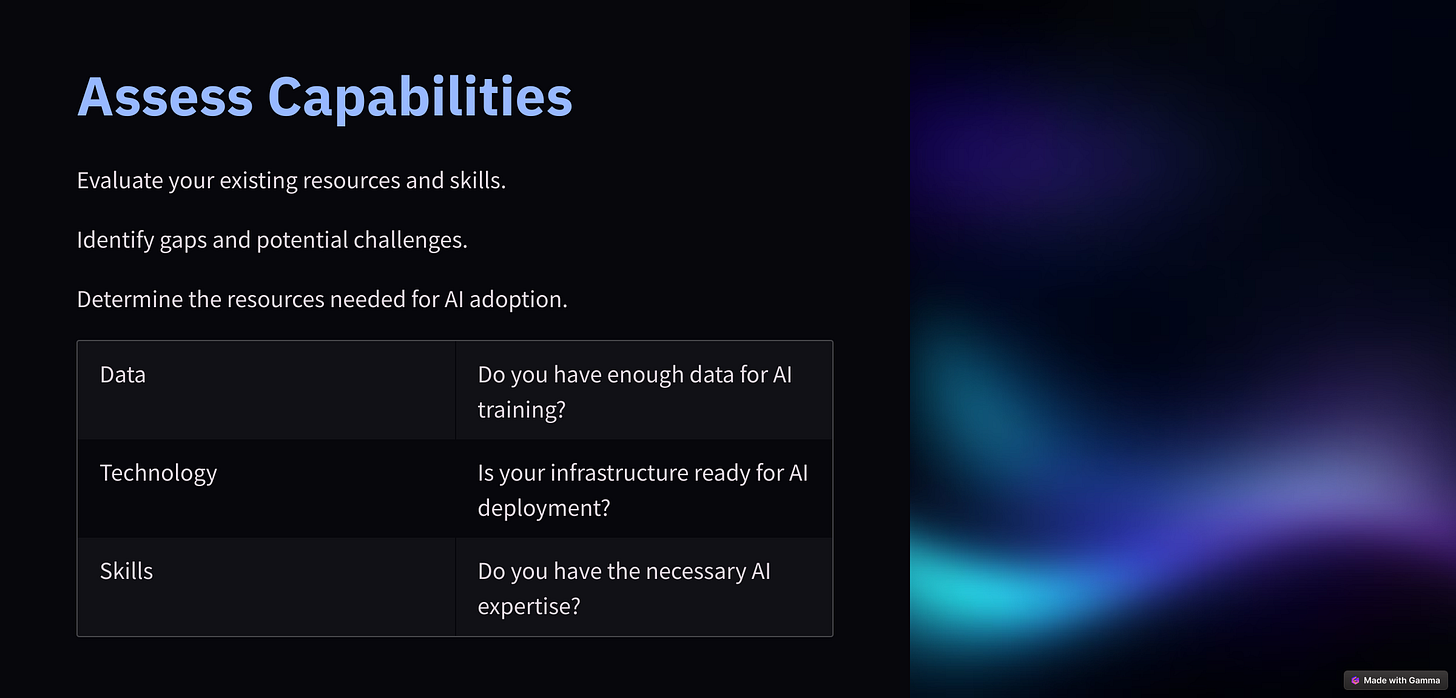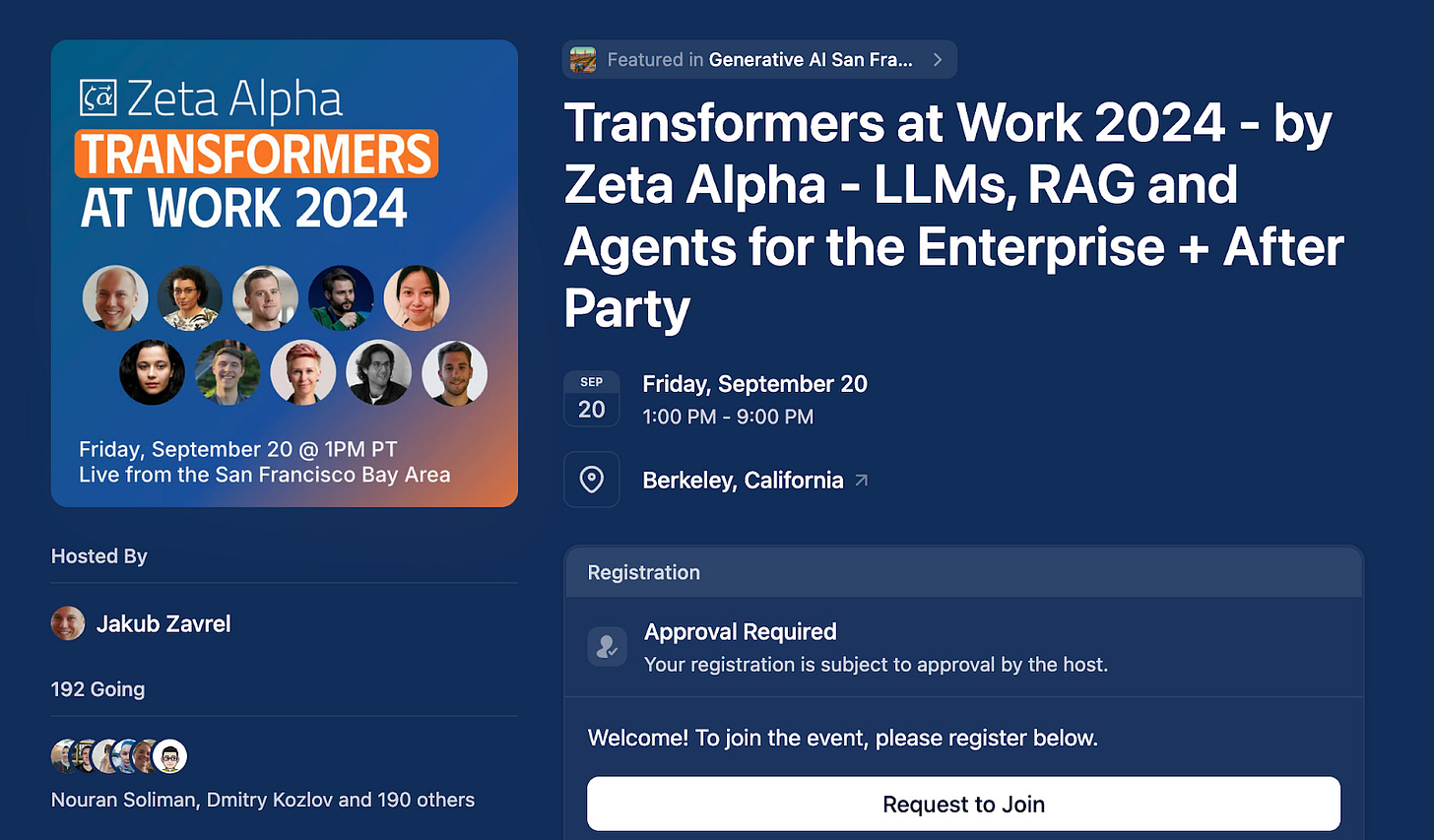I had the opportunity to meet with the Head of Economic Policy for the state of California at an event last Friday. Our mutual friend worked with them during the Clinton era, so it's a small world. The discussion revolved around building relations related to AI and providing the government with a boots-on-the-ground perspective in the tech community.
During the event, I heard my friend, Joe Hurd, talk about the importance of mindfulness in technology, emphasizing that governments need to understand the human cost of tech.
I also met with a group of CEOs of AI knowledge management companies from Amsterdam who identified a common problem: Companies need to know where the knowledge resides within their organization. They are now leveraging AI to bring the most critical insights to the surface.
In addition, they are hosting an event in the Bay on Friday, and all paid subscribers will receive VIP tickets.
To stay afloat, let's delve into something companies must do: "make a profit."
Profit is the primary reason for-profit organisations exist. Productivity is closely linked to this topic, and while people are often seen as the key growth drivers, one underestimated factor is the business model itself—how to make a profit.
AI is influencing the emergence of new business models and putting traditional models, including the new golden subscription model, under pressure.
Business models:
The idea is simple: acquire goods and services for less than you sell them.
A great business model allows you to retain customers and do this at scale.
A world-class business model sells for you via word of mouth and network effects that improve the performance of the service with more users.
In recruitment executive search, there is a "retainer" business model. For example, you pay one-third of an executive's $500K salary to find the person, which is about $150K. Even if you find the person yourself, you still pay this amount. There are good reasons for this type of model, but I've never met a customer who "loves" it.
This was the case for Netflix and Blockbuster. Netflix innovated on a model with "no late fees." Customers hate fees, just like they hate paying search firms if they don't find the talent. This is something to be mindful of.
Disruption is on the horizon, but the question is how to stay ahead, not only by adapting the business model.
6 step strategic Plan:
In the age of AI, there will be new business models that will disrupt the traditional ones due to these factors. Many companies will face the innovator's dilemma. SAAS companies are starting to see and feel this:
2.
I’ve also noticed companies embarking on an "AI fund." There are now companies that have one investment fund focusing on de AI companies.
source; Thankbuddy.ai
3.
The cost of goods sold (COGS) will dramatically decrease as your "cost to serve" decreases. Consumption and value-based models will be easier to manage with AI—people will not be charged if they don't get value.
For example, with AI, it's now possible to build a communication plan that a PR firm may have sold you or helped save time in identifying your targets.
4.
That cost savings will eventually find its way to the consumer. Therefore, the costs of trading AI services will decrease as competition with evolves.
So, while the margin is compressed, there is an opportunity to have an "AI twin" of your service. It's similar to e-commerce or in-store—the reason stores are so hard to maintain is complexity and cost.
Even SAAS companies are at risk because they are not using AI to deliver their service due to the high “sales tax” when running an organisation that relies on new salespeople to grow vs word of mouth.
The opportunity lies in integrating AI into their solutions on the front end and the delivery side so that your best sales folks can build relationships with customers instead of doing admin.
5.
I would assign someone in your company who loves AI to do this; you can also ask Tunde.ai to help support you.
6.
I'll finish this section by saying Profit is not only about people's productivity; it's about the unit economics of how goods are sold.
In the age of AI, remaining flexible and reevaluating your overall business will lead to new business models!
AI News & Trends


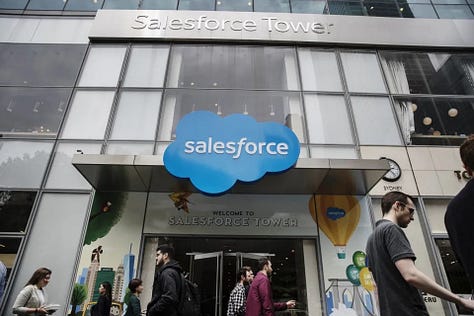
Salesforce’s New AI Strategy Acknowledges That AI Will Take Jobs
Gavin Newsom signs bills to help provide AI protections for actors
ChatGPT's new update introduces OpenAI's o1 series, tackling complex problem solving
Nvidia reports 122% revenue growth on surging demand for data centre chips
Events
We will be at the Responsive Conference in Oakland today, so we hope to see you!
Also this Friday, we will be attending:
Register using “EQ AI Community” to ensure approval for the event


